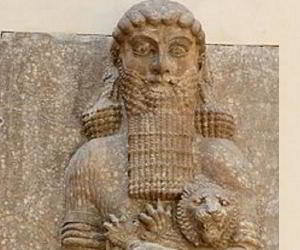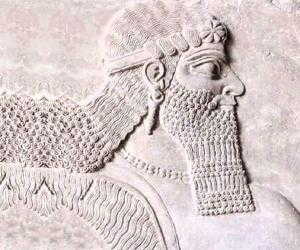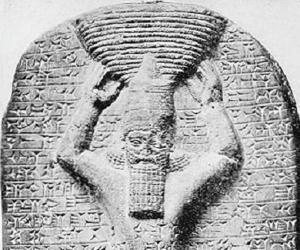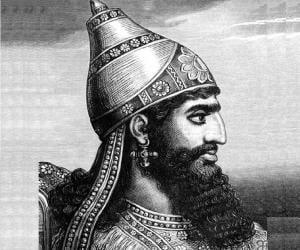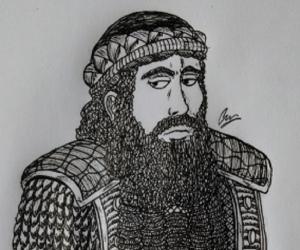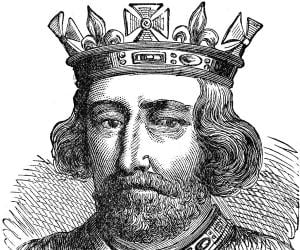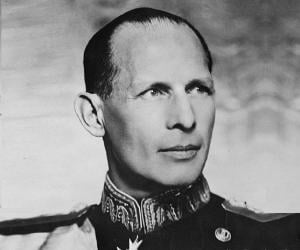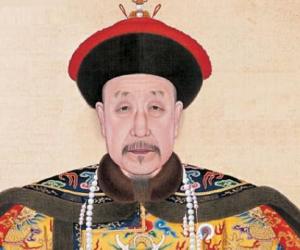History & Legend
According to legends, Gilgamesh was the son of Priest-King Lugalbanda, who himself has featured in two Sumerian poems for his magical abilities, and the goddess Ninsun. Historically, he is believed to be the fifth king of the Sumerian city-state of Uruk who reigned in the 26th century BCE.
According to an anecdote from 'On the Nature of Animals' by the second-century Greek writer Aelian, Gilgamesh's grandfather had imprisoned his mother upon learning from an oracle that his grandson would overthrow him. Nevertheless, his mother became pregnant and gave birth to him, following which he was thrown off a tower but was rescued by an eagle and raised by the gardener of an orchard.
The Sumerian King List, an ancient stone tablet recorded in the Sumerian language, mentions that Gilgamesh reined for 126 years, while his father ruled for 1,200 years. King Enmebaragesi of Kish, the earliest ruler on the list whose name is attested directly from archaeology, was also mentioned in the original 'Epic of Gilgamesh' as the father of the Aga, who laid siege to Uruk.
While no contemporary records have been found of his reign, many later Mesopotamian dynasties worshipped him as a god, and King Utu-hengal of Uruk from 21st century BCE, had declared him his patron deity. Most notable among the kings who would invoke his name to assert power was Shulgi of Ur (2029-1982 BCE), the greatest king of the Third Ur Dynasty, who claimed Gilgamesh was his divine brother.
The Akkadian text (c. 1200 BC) of the 'Epic of Gilgamesh', consisting of twelve tablets, was first discovered by archaeologist Austin Henry Layard in 1849 at Nineveh, in the Library of Ashurbanipal. Following its translation in the early 1870s, the story of the great flood in Tablet XI created a huge controversy as it showed that the Old Testament had borrowed it from earlier myths.
Continue Reading Below
Later Interpretations
Gilgamesh's quest to find the meaning of life and his failed attempt at attaining immortality symbolize the eternal struggle of every human being. The story has been interpreted by many modern scholars from different fields of study.
The similarities between the 'Epic of Gilgamesh' and several biblical legends prompted German Assyriologist Friedrich Delitzsch to claim that the Hebrew Bible was irredeemably 'contaminated' by Babylonian influence. Another German Assyriologist, Alfred Jeremias, argued that most well-known biblical figures are nothing more than exact copies of Gilgamesh, an ideology that later became known as Panbabylonianism.
German psychologist Sigmund Freud had his own interpretation of Gilgamesh and Enkidu representing "man" and "crude sensibility" respectively. The existential themes of the epic became particularly relevant following the two World Wars, with several different ideological groups interpreting it to fit into their own narrative.
Facts About Gilgamesh
He was believed to be two-thirds god and one-third human, showcasing a unique blend of divine and mortal characteristics.
Gilgamesh's epic journey in search of immortality reflects timeless themes of human ambition, friendship, and the inevitability of death.
Legend has it that Gilgamesh built the magnificent city of Uruk, known for its impressive walls and temples, showcasing his leadership and architectural prowess.
Despite his flaws and struggles, Gilgamesh's story continues to captivate readers and scholars alike, making him a timeless figure in literature and mythology.
